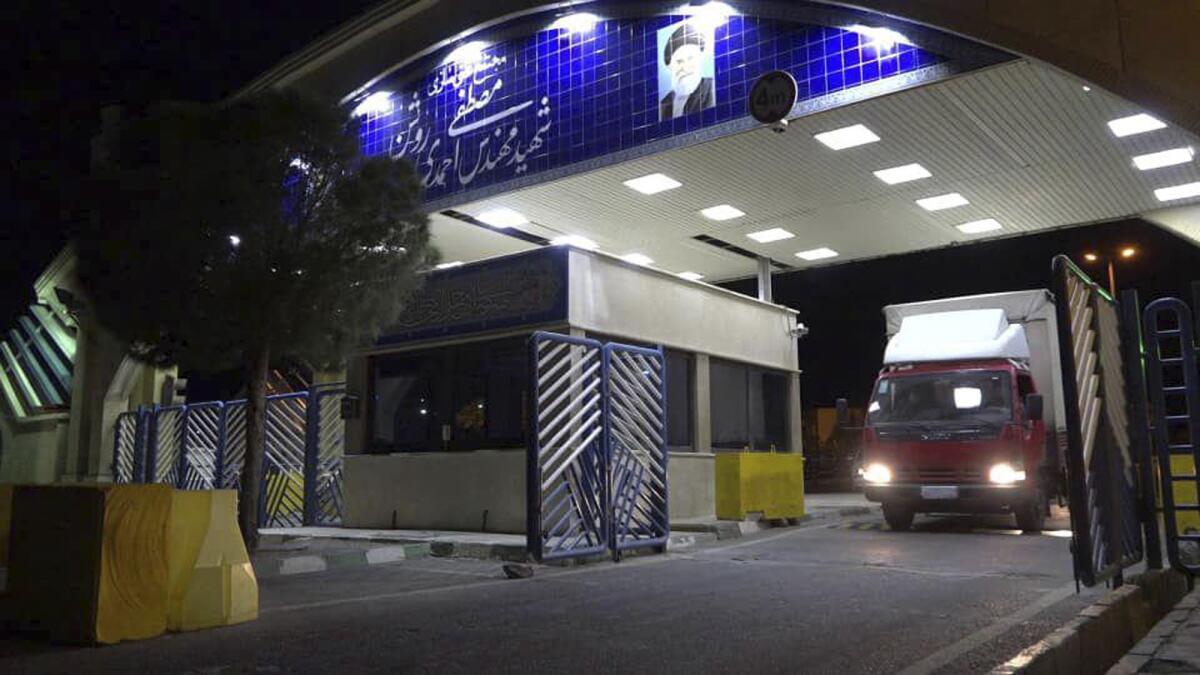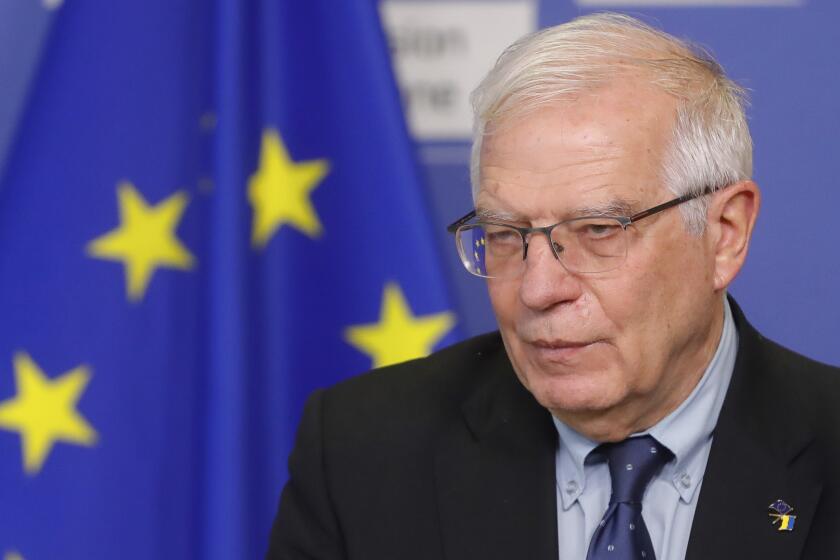Iran says several arrested in nuclear facility sabotage plot

- Share via
TEHRAN — Iranian state television reported Monday that the paramilitary Revolutionary Guard arrested members of a “network” working for Israel that planned to sabotage Iran’s major underground nuclear facility at Fordo.
The report claimed that the “Zionist regime” — a reference to Israel — has for years been trying to hit Fordo, a leading nuclear facility in the country, but without success. The report did not give the number of suspects arrested, their nationalities or when and where the arrests supposedly took place.
There was no immediate comment from Israel.
Iran has recently stopped the International Atomic Energy Agency, or IAEA, from accessing its surveillance camera recordings and has resumed enrichment of uranium at Fordo as Tehran’s nuclear deal with world powers fell apart and talks of returning to the deal paused. Iran however, has said it would keep the surveillance recordings and hand them over to the IAEA if and when it’s granted sanctions relief.
The TV report said that those arrested approached employees at Fordo’s IR-6 section, where it is believed that centrifuges for spinning uranium are developed, paying them in cash or cryptocurrency, and instructing them on how to connect with an Israeli agent, who was acting as a manager of a company based in Hong Kong.
Once “cooperation” between an unspecified number of Fordo staffers and the agents began, the entire communication was monitored by the Revolutionary Guard, which provides security at Iran’s nuclear facilities.
According to the report, the alleged sabotage was to take place ahead of the Persian New Year, or Nowruz, which starts March 21.
Iranian authorities regularly report claims of dismantling spy and other networks seeking to harm Iran, but seldom offer any evidence.
The TV report came as months-long negotiations in Vienna aimed at restoring Iran’s tattered nuclear deal with world powers went on what their European hosts described as “a pause” after Russia demanded relief from sanctions targeting it over its war against Ukraine. Iran claimed the pause was because of new U.S. demands.
Negotiations aimed at restoring Iran’s tattered nuclear deal with world powers have gone on what its European hosts describe as a ‘pause.’
The talks were seeking to draw a road map for how the United States could rejoin the accord from which it unilaterally withdrew in 2018, and how Iran would again limit its rapidly advancing nuclear program.
Monday’s claim also follows several suspected incidents targeting Iran’s nuclear program that have heightened regional tensions in recent months.
In April, Iran’s underground Natanz nuclear facility experienced a mysterious blackout that damaged some of its centrifuges. In 2020, unexplained fires struck the advanced centrifuge assembly plant at Natanz, which authorities later described as sabotage. Iran is now rebuilding that facility deep inside a nearby mountain.
Israel is widely believed to have carried out the Natanz sabotage, though it has not claimed responsibility. Iran also blamed Israel for the November 2020 killing of a scientist who began the country’s military nuclear program decades earlier.
In other developments, state TV also reported Monday that the country’s intelligence agents have arrested and dismantled two groups of militants, including six “armed terrorists” who had entered Iran to assassinate “several foreign nationals” working in the southeastern province of Sistan and Baluchistan on various infrastructure projects.
The second group that was dismantled reportedly was a support team that had awaited the arrival of the first group. The report also said that all members of the two teams who were inside Iran at the time of the intelligence operation have been arrested.
The report did not elaborate about where the foreign nationals came from or when the two groups were caught. Security forces have in the past repeatedly clashed with militant groups and also with drug traffickers in the province, located along a major smuggling route for Afghan opium and heroin.
More to Read
Sign up for Essential California
The most important California stories and recommendations in your inbox every morning.
You may occasionally receive promotional content from the Los Angeles Times.











